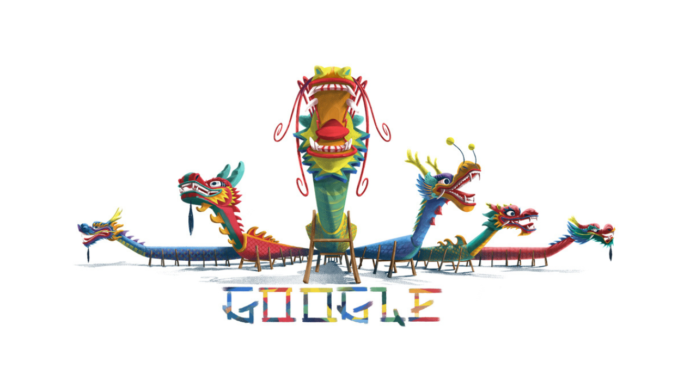A few times a year, Google surprises its users by decorating its iconic homepage logo with a playful, educational, or artistic twist. These so-called “Google Doodles” celebrate global holidays, historical figures, cultural moments, and events. One well-loved doodle is the Dragon Boat Festival Google Doodle — a colorful tribute to an ancient Chinese holiday that has crossed borders and cultures, including in the United States.
Here’s a look at the history of the Dragon Boat Festival, how and why Google decided to pay tribute to it with a doodle, and what it means to communities throughout the U.S.
What Is the Dragon Boat Festival?
The Dragon Boat Festival, or Duanwu Festival, is a traditional Chinese holiday celebrated on the 5th day of the 5th month of the lunar calendar — typically occurring in May or June on the Gregorian calendar.
The Legend Behind the Festival
The festival honors Qu Yuan, a patriotic poet and official from ancient China during the Warring States period. After facing false accusations of treason, Qu Yuan committed suicide in the Miluo River. Moved by his loyalty and virtue, locals paddled out in boats to search for his body and scattered rice into the water to deter fish from consuming it. These acts evolved into the modern traditions of dragon boat racing and zongzi (glutinous rice dumpling) making.
Modern Celebrations
Today, the festival is celebrated with thrilling dragon boat races, cultural performances, and food-centered gatherings. Although it originated in China, the Dragon Boat Festival is now observed across Asia and in Chinese communities around the world — including many cities in the United States.
Google Doodle Celebrating the Dragon Boat Festival
When Did Google Create a Dragon Boat Festival Doodle?
Google first celebrated the Dragon Boat Festival with a Doodle on its homepage in select regions in 2012 and has updated it several times with new art and animation. The Doodle typically appears on the homepages of countries with significant Chinese populations or where the festival is widely celebrated.
Although it’s never guaranteed that the U.S. homepage will feature a Dragon Boat Festival Google Doodle, it’s becoming increasingly popular in the U.S. as interest in multicultural holidays and cultural heritage grows.
The Doodle Artistry
The Dragon Boat Festival Google Doodle often highlights:
- Animated dragon boats cutting through water
- Rowers synchronizing their paddles
- Ornate dragons and traditional folk patterns
- Zongzi, Qu Yuan, and Chinese lanterns appearing occasionally
These visuals combine cultural education with digital creativity, making the Doodle both fun and informative.
Why the Google Doodle Matters
Promoting Cultural Awareness
Google uses the Dragon Boat Festival Doodle to celebrate cultural diversity and promote global awareness. In a multiracial, pluralistic country like the United States, understanding global traditions fosters inclusion, acceptance, and empathy.
Inspiring Curiosity
The Doodle typically sparks curiosity, encouraging users to click and learn more. As a result, Google sees a surge in searches for “dragon boat festival,” “Qu Yuan,” or “zongzi recipe.” It’s a subtle, interactive way to spark educational exploration.
Honoring Chinese–American Communities
Chinese-American communities in cities such as San Francisco, New York, Seattle, Houston, and Los Angeles host Dragon Boat Festivals attended by thousands. Google’s Doodle is a nod of recognition and respect for these communities and their rich cultural traditions.
Dragon Boat Festival in the U.S.
Though the Dragon Boat Festival originated in China, its celebration in the U.S. has developed a unique identity. The American version blends traditional customs with local flavor, resulting in vibrant and inclusive events.
Major U.S. Dragon Boat Events
- Boston Dragon Boat Festival – One of the largest and oldest in North America, drawing around 30,000 people
- Portland Rose Festival Dragon Boat Race – A Pacific Northwest institution
- Philadelphia International Dragon Boat Festival – A celebration of competition and cultural exchange
- Atlanta Hong Kong Dragon Boat Festival – Combines Southern hospitality with Asian tradition
- San Francisco International Dragon Boat Festival – Held on Treasure Island with stunning views and large crowds
These events often feature Asian cultural expos, martial arts demonstrations, lion dances, food vendors, and traditional music.
What the Doodle Can Teach Us
A Classroom Conversation Starter
Many U.S. educators use Google Doodles as springboards to introduce students to world cultures. If the Dragon Boat Festival Google Doodle appears, it’s a great opportunity to explore:
- Ancient Chinese history
- Poetry and storytelling
- Multicultural celebrations
- Water sports and team-building activities
Promoting STEAM Through Art and Animation
Google Doodles also support STEAM education (Science, Technology, Engineering, Arts, and Math). Students interested in animation, design, or computer science might reverse-engineer doodles or create their own versions using interactive learning tools.
How to View Past Dragon Boat Festival Google Doodles
If the Doodle doesn’t appear on the homepage when the festival occurs, you can still view past editions by visiting the Google Doodle Archive. Just search for “Dragon Boat Festival” to explore:
- Year-specific artwork
- Animation styles
- Doodle artist interviews
How the Doodle Affects Search Trends
When the Doodle goes live, related search terms often spike on Google Trends, including:
- “Meaning of Dragon Boat Festival”
- “Google Doodle for Dragon Boat Festival”
- “When is Dragon Boat Festival?”
- “Qu Yuan story”
For digital marketers, educators, and event organizers, this presents a golden opportunity to create relevant content, engage audiences, and celebrate global heritage.
The Dragon Boat Festival Google Doodle is a tiny graphic — but it carries tremendous cultural and educational value. It bridges continents, generations, and traditions, all through a few clicks and strokes of digital art.
These gestures by Google contribute to the larger mission of fostering global understanding and appreciation for cultures beyond our own. In the diverse tapestry of the United States, this is a powerful and much-needed effort. Whether you’re watching a dragon boat race in your city or learning about Qu Yuan for the first time thanks to a doodle, the message remains: heritage matters — and it deserves to be celebrated.

